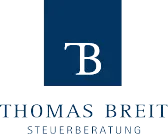Does the profit you make every year shrink because part of it falls victim to trade tax? What exactly is this tax? And are there ways to cut how much trade tax you pay?
Although (almost) all of my clients pay it, many entrepreneurs do not know what the purpose of trade tax is and which office collects it in the first place.
But most of them do know one thing for sure: Trade tax reduces the annual company profit by about 15%. Therefore, I am often asked about ways to reduce this tax burden.
In this article, I will explain in simple terms the options that are open to you.
I will explain the most important aspects of trade tax and show you how you can even avoid it in certain exceptional cases.
The article at a glance:
- What is trade tax?
- How is it calculated (incl. case studies)?
- How can you reduce trade tax?
- Which professions are exempt from trade tax?
This post was updated on 3 August 2021.
What is trade tax?
Trade tax is a tax that you, as a business owner, have to pay to the municipality your company is located in. It is a profit-based tax, which means: It varies depending on the size of your profit.
Trade tax counts as a municipal tax. This means: The municipality where your business is located is responsible for collecting it and also keeps the money that is collected.
Each municipality can determine for itself how much it gets of your trade income (i.e. your profit) through the so-called rate of assessment (Hebesatz).
Short digression: The rate of assessment
The rate of assessment is one of several factors used to calculate trade tax. It is multiplied by the tax assessment amount of your profit in order to calculate the total municipal tax you have to pay.
Each municipality can set the rate of assessment individually and thus actively decide what amount you have to pay as a trader.
Since 2004, the following applies in Germany: The minimum rate of assessment is at least 200%. However, this percentage applies more to smaller areas, while in large cities such as Hamburg, Cologne or Munich there is a rate of assessment of up to 490%.
How is trade tax calculated?
Several factors determine the amount of trade tax you have to pay. However, how the exact amount is calculated is the same for every municipality:
- Your trade income (i.e. your profit) is calculated.
- This is multiplied by a tax rate of 3.5%.
- In the final step, the resulting tax assessment amount is multiplied by the individual rate of assessment.
- The final total is the trade tax you have to pay.
Please note: For non-corporations (e.g. sole proprietorships, partnerships or general partnerships) you deduct a tax free allowance of €24,500 from your trade income. Then the resulting sum is multiplied by the tax rate and the rate of assessment (see Section 11 German Trade Tax Act (GewStG)).
This means: If your profit is less than €24,500, you do not have to pay any trade tax.
But don’t worry, at first glance this calculation looks more complicated than it really is. As a business owner, you only need to remember the following rule of thumb: On average, you can expect to pay trade tax of around 15% of your profits.
Trade tax calculation explained using case studies
Due to the above-mentioned tax-free allowance, two scenarios are possible here. I have chosen the Hamburg rate of assessment of 470% as the rate for both case studies.
1. Trade tax calculation of a GmbH
Annual profit: €100,000
Taxable profit: €100,000
Trade tax assessment amount: €100,000 x 3.5% = €3,500
Multiplied by the rate of assessment: €3;500 x 470% = €16,450
Trade tax due: €16,450 (about 16.5% of the profit)
2. Trade tax calculation of a sole proprietorship or partnership
Annual profit: €100,000
Taxable profit: €100,000 – €24,500 tax-free allowance = €75,500
Trade tax assessment amount: €75;500 x 3,5% = €2,642.50
Multiplied by the rate of assessment: €2;642.50 x 470% = €12,419.75
Trade tax due: €12,419.75 (about 12.5% of the profit)
How can you save on trade tax?
Option 1 Tax structuring
As the above case studies show, the basis for calculating trade tax is always your profit.
To reduce your trade tax, the logical approach is to keep your taxable profit as low as possible through clever tax structuring. Some of your options are:
- Taking advantage of investment allowancesand writing off planned investments by up to 60% before the purchase
- Write off slow-moving itemsand at least benefit from the permanent loss in value for tax purposes
- Build provisionsfor future costs of document storage (rental costs, heating costs, server costs, etc.)
I have prepared this easy-to-understand article for you, where I explain in detail how you can implement these measures in practice and thus reduce your taxable profit: https://www.steuerberatung-breit.de/tax-structuring-the-best-options-for-large-small-gmbhs/
Option 2: Establish an asset-managing limited liability company (vermögensverwaltender GmbH)
Are your private assets currently held in your company and all your income is subject to trade tax?
With a so-called asset-managing GmbH you can change that!
You simply transfer your assets to this newly established GmbH and you no longer have to pay any trade tax.
Important: The asset-managing GmbH may not be commercially active and can really only manage your assets.
I have summarized all the details on the asset-managing GmbH and which assets it is suitable for in a separate article: https://www.steuerberatung-breit.de/tax-structuring-the-best-options-for-large-small-gmbhs/
Option 3: Choosing the right company location
Admittedly, this option is probably only relevant when you are in the process of establishing your company.
But theoretically you can save a lot by choosing the location cleverly. The lowest rate of assessment is 200%, while in many economic hot spots 400 or even 500% is added on.
So by moving to a district with a 200% rate of assessment, you could cut your trade tax bill by more than half.
In practice, however, things often look quite different: The areas with the lowest municipal tax rates are often far away from economic centers and this is not a good enough reason to relocate.
In addition, for many companies the relocation costs alone would eat up the potential savings over time.
Professions that are exempt from trade tax: What exemption rules apply here?
Some of you can breathe a sigh of relief at this point. Because all “free” professions (such as doctors, lawyers, accountants and yes, also tax consultants) are not subject to trade tax.
This tax only affects those who engage in a commercial activity (usually manufacturing or processing businesses).
Caution: However, a limited liability company (GmbH) is always considered to be a commercial business. Even if it is, for example, a tax consultancy GmbH. You as a GmbH owner are also not entitled to a tax-free allowance of €24,500.
Conclusion: Reducing trade tax is difficult, but possible
Trade tax affects most German businesses but to different degrees. As a rule of thumb you can expect to pay about 15% of your profits in trade tax.
Despite the fairly strict rules, there is potential for savings:
- With the help of clever tax structuring, you can keep your taxable profit as low as possible
- By using an asset-managing GmbH, you can make income from your assets exempt from trade tax
- In exceptional cases, you can also make savings by cleverly choosing the location of your company
However, you must be aware of one thing: All of these options are also associated with costs.
Before you decide to implement one of my tips, you must therefore carefully weigh up all the advantages and disadvantages. That is why, you should always seek the advice of a tax consultant. Only an experienced tax consultant can analyze your individual situation and recommend the best course of action for you.
If you still have questions about trade tax for your business, and your obligation to pay it, you can reach me at any time by phone (+49 40 44 33 11), email (anfrage@steuerberatung-breit.de) or contact form (click here!).
Kind regards,
Thomas Breit
Photo: © Kevin Mayer – Fotolia.com



